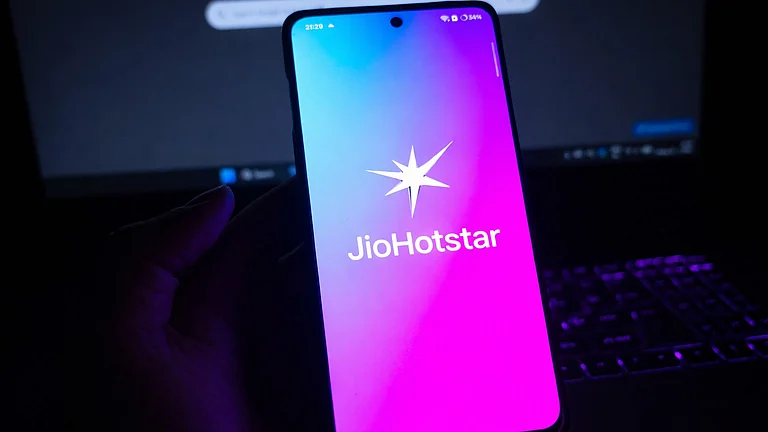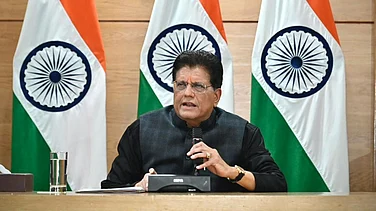India’s start-up scene has been brimming with confidence and intense activity over the past few years, but 2021 saw a new high—a record 44 Indian start-ups achieved unicorn status, taking India’s overall tally to 83. As per the Economic Survey 2021-22, 14,000 new start-ups were recognised by the Government of India as against 733 reported in 2016-17. In fact, the country’s ranking in the Global Innovation Index, too, moved to 46 from 81.
The year 2021 also witnessed 555 districts register at least one new start-up—a majority of them being in Rajasthan, Delhi, Uttar Pradesh, Maharashtra, Gujarat, Karnataka and Kerala—as against 121 districts in 2016-17. Over the last few years, Delhi has replaced Bengaluru as the start-up capital of India. Over 5,000 recognised start-ups were added in Delhi, while 4,514 start-ups were added in Bengaluru between April 2019 and December 2021. With a total of 11,308 start-ups, Maharashtra has the highest number of recognised start-ups.
New Growth Drivers
“It is true that 2021 has seen unprecedented levels of funding. Large number of unicorns and, more importantly, a series of successful IPOs have shown that India can produce businesses of scale and create significant shareholder value. That has naturally led to increased investor interest from around the world,” says Rajan Anandan, MD, Sequoia India.
He also said that India’s deep talent pool and rapid adoption of technology, further accelerated by Covid-19, generated tailwinds which meant that more and more Indian businesses are making a mark on the global economy. “We hope that the Indian government opens up the option for overseas listing next year, adding a further boost to the start-up ecosystem,” he says.
The government, too, has been backing the segment and recognises it as a pillar for the Indian economy. Prime Minister Narendra Modi, in a recent virtual gathering of over 150 entrepreneurs, which was part of the 'Azadi ka Amrit Mahotsav,' termed start-ups the “backbone” of new India and the engine that would power the nation’s economic growth in the run-up to its 100th year of independence. He also declared January 16 as the National Start-up Day.
Reacting to the tremendous growth of the country’s start-up sector, Ankur Pahwa, national leader, ecommerce sector, EY India, says, “Start-up India is unpacking the significant potential of India’s demographic dividend by spurring entrepreneurship, job creation, skill development, social impact, etc. while also contributing in a big way in achieving India’s ambitions and aspirations.”
While most Indian start-ups belong to the services sector—one of the worst affected by the pandemic as its share in India’s GVA declined from 55 per cent in 2019-20 to 53 per cent in 2021-22—niche segments, such as space too are witnessing a rising number of new entrants. In just the past three years, the number of start-ups in the space sector has increased from 11 in 2019 to 47 in 2021.
Happy Ecosystem
Start-up founders could not have been happier. “Indian start-ups are on a roll, and it is heartening to witness the country's start-up ecosystem growing rapidly on a global scale. Recognition of a wider pool of start-ups will enable us to access tax benefits, easier compliance and funding support amongst other benefits. This will foster local entrepreneurship significantly and give rise to a new generation of founders,” says Aloke Bajpai, group CEO and co-founder of IPO-bound travel portal Ixigo.
Beauty brand Mamaearth, the first unicorn of 2022, which raised $52 million in a round led by Sequoia at a valuation of $1.2 billion, has emerged as one of the hottest new-age consumer brands in India, riding the direct-to-consumer (D2C) wave. Its co-founder and chief innovation officer Ghazal Alagh is ecstatic about the rise of entrepreneurship in India. “Mamaearth was born out of a personal struggle and by identifying the gap in the market. Since then, we have seen so many entrepreneurs build businesses with amazing ideas. I was recently on Shark Tank—a reality TV series—and came across entrepreneurs from the age of 15 to 50 and the business ideas that they presented were rooted in real consumer problems. Forty-eight per cent of the pitches had woman co-founders, 34 per cent of pitches were by coupleprenures and almost 40 per cent of entrepreneurs were Covidprenures [entrepreneurs who started during Covid-19]. Today, India is exuding an exceptional pool of smart and talented entrepreneurs, and we are certain that the future of entrepreneurs and start-ups is bright and on an upward trajectory,” she says.
Akhil Gupta, chief technology officer of Nobroker, one of the unicorns of 2021, also expressed his excitement over India’s thriving start-up sector. “The next decade belongs to India as there is no better place to invest than here. We have a big market domestically that is growing in age and per capita income. Coronavirus has shown that digital will be the way forward and accelerate the digital journey for many sectors that have attracted a lot of money which was due to come in the next few years,” he says.
Patent Push
As a large number of India’s start-ups are in the IT/ knowledge-based sector, intellectual property, specifically patents, are key to this knowledge-based economy. There has been a gradual increase in the filing and granting of patents in India. The number of patents filed in India has gone up from 39,400 in 2010-11 and 45,444 in 2016-17 to 58,502 in 2020-21 and the patents granted in India have gone up from 7,509 to 9,847 to 28,391 during the same period. Further, the number of applications for patents is increasingly coming from Indian residents rather than MNCs. The share of Indian residents in total applications has increased from 20 per cent in 2010-11 to around 30 per cent in 2016-17 and 40 per cent in 2020-21.
While this is remarkable progress, the number of patents granted in India is still a fraction compared to the patents granted in China, the USA, Japan and Korea. According to the World Intellectual Property Organization, the number of patents granted in China, the USA, Japan, Korea stood at 5.30 lakh, 3.52 lakh, 1.79 lakh, 1.35 lakh, respectively, for 2020.































